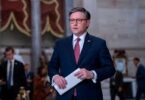Renat Abdullin
The US and EU are increasingly at odds over anti-Russian sanctions. While Washington is announcing new bans, Brussels is doing its best to slow them down. About how and why the “collective West” is splitting – in the material of RIA Novosti.
The US keeps pushing
US Treasury Secretary J-anet Yellen announced san-ctions against “a transnational network of individuals and companies that w-orked to purchase military technology” for Russia. According to Reuters, this statement was made on the sidelines of the G20 summit in Indonesia. The agency clarified: according to Yellen, we are talking about “14 individuals and 28 legal entities, including financial intermediaries.” About whom specifically – is still unknown. “This is part of our larger effort to disrupt Russia’s military efforts and deprive it of essential equipment through sanctions and export controls,” she added.
Speaking about future anti-Russian steps, she also touched upon the restrictions already introduced by the West. As the American edition of The Wall Street Journal writes, Yellen stressed that it is likely that the measures taken earlier will partially remain in force even after the conclusion of some kind of peace agreement between Moscow and Kyiv, if there is one at all. “Adjustment of sanctions is possible and probably appropriate,” the finance minister said at the same time, again without going into details.
Yellen’s words sounded like a clear signal not so m-uch for Russia’s conditional allies, who avoid unambi-guous support for Western restrictions, but for the US European partners. Indeed, in Europe, with the appro-ach of winter, doubts are i-ncreasingly being expressed about the appropriateness of the sanctions policy.
Delayed EU sanctions
On the eve of the Ind-onesian G20 summit in Br-ussels, meetings of the EU member states at the level of foreign and defense ministers started. The head of European diplomacy, Josep Borrell, told reporters befo-re a meeting of foreign mi-nisters that the European Union was not ready to discuss and impose new sanctions against Russia in the near future.
“Not today. We react, co-ntinue the procedure (discussions). Member states c-ome up with proposals, th-ey are studied, consultatio-ns are held with legal services, then we proceed to adoption,” the diplomat explained.
Borrell made the main emphasis not on new restri-ctions for Moscow, but on military assistance to Kyiv, but primarily intangible. “The EU is launching a mi-ssion to train the Ukrainian military in record time,” he announced.
Such restraint demonst-rates a change in the Eur-opean approach to the Ukr-ainian crisis. Back in Oct-ober, the EU adopted the latest eighth package of sanctions against Russia, which includes new trade restrictions. And also – a ban on the transportation of Russian oil to third countries if its price is higher than the “ceiling” set by Brussels (it will begin to operate from December 5). Some felt that this was not enough. Lithuanian Presi-dent Gitanas Nauseda, for example, already at the end of the month called for discussion of the ninth round of sanctions. “Our sanctions are working, but they have not achieved the de-sired result, so we must discuss and consider the next package,” the Lithuanian leader said. Nauseda also advocated the introduction of measures against Belarus.
However, the Baltic and Polish (Warsaw traditionally favors the toughest restrictions) initiatives did not find support among the stronger EU players, inclu-ding Germany, which is still the EU’s powerhouse.
Preventive calls from Washington
The restraint of European partners about a further round of sanctions does not escape the attention of the United States. According to the American press, officials in Washington are increasingly concerned that allies in the EU are deviating from the once common course.
According to Politico sources, US representatives in the European Union are constantly warning colleagues at home about growing dissatisfaction with the White House. As two senior US officials said, such fears recently even “sparked a flurry of calls” from Washington to European capitals. The purpose of the “preventive talks” was to make sure that the EU remains in solidarity with the US, despite the damage from Russian retaliatory measures.
Suspension of energy supplies due to sanctions has forced many European countries to shift their attention from supporting Ukraine “to solving the energy crisis,” says Max Bergmann, director of the European program at the US Center for Strategic and International Studies.
“What really worries me is the split between the US and Europe,” echoes Fiona Hill, a former special assistant to the President of the United States for European and Russian affairs. “Because the United States looks better in terms of energy, since we are a large producer. We should have been working on this (energetic) transition before.”
At the same time, other sources note that despite the problems with energy resources, “when it comes to government decisions, we see unshakable support (of Ukraine).”
Washington hopes that recent contacts will ease tensions with European countries. The White House is also counting on the idea of peace talks between Moscow and Kyiv. However, the last word on readiness for dialogue is left to Ukrainian President Volodymyr Zelensky. This does not make it any easier for the Europeans, because the Kyiv regime puts forward conditions that are unacceptable to Russia. And without negotiations, we have to constantly warm up the topic of sanctions.
There was no unity
Experts interviewed by RIA Novosti agree that the split between the US and the EU on sanctions issues will only deepen.
“The concern of the Am-ericans about the behavior of partners is justified,” says Vladimir Olenchenko, senior researcher at the Center for European Studies at IMEMO RAS. “In the spring, the United States acted as the leader on the issue of sanctions, and Europe was the follower. Apparently, this scheme is not working now “On the one hand, the Europeans have exhausted the possibilities of new restrictions, and further sanctions will only hinder their own normal development. On the other hand, the seasonal factor is also important – the arrival of winter, when problems arise in their countries more acutely. Apparently, on the sidelines of the EU, the course towards national rather than geopolitical interests.”
Head of the Department of International Economic Organizations and European Integration at the Higher School of Economics Vladimir Zuev, in turn, believes that it is still premature to talk about a decrease in sanctions activity in Europe. “A lot depends on the dynamics in the Ukrainian direction, on compromises between specific players. There was no unity in the EU from the very beginning. To a greater extent, sanctions were coordinated by pan-European structures like the European Commission, and individual countries – Germany, France, Hungary – always considered softer options,” the expert recalls, emphasizing that dissatisfaction with dependence on the United States is indeed growing. But this concerns not only sanctions, but, for example, security and defense issues. In this regard, the EU has now begun the transition from a predominantly economic model of association to a military-political one.
As Vladimir Olenchenko notes, it is not easy for the European Union to move away from the American course: “The United States has stereotyped, well-established methods of pressure. The first is personnel, when dissenting European leaders will simply be slandered and squeezed out of politics. denial of them.”
So far, the heads of the Foreign and Defense Ministries of the EU member states have put off the sanctions issue, but, obviously, they will soon have to outline their position to Washington. Bucharest will host a summit of NATO foreign ministers on November 29 and 30, where it is planned to discuss the decisions of the summer “historic” meeting of the North Atlantic Alliance in Madrid. Then, we recall, the West called Russia the main threat. And the United States, as the NATO leader, will certainly use all possible levers to keep the Europeans in its wake.






